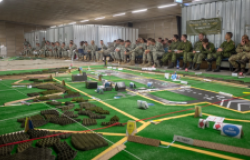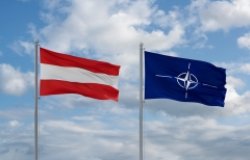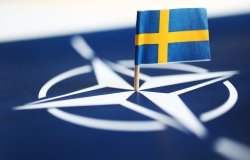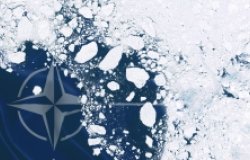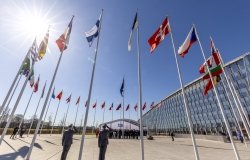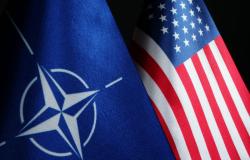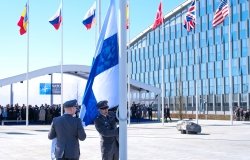America's New Friends in the East: Does EU and NATO Expansion Promise to Re-energize the Transatlantic Alliance?
Robin Shepherd The Times of London and Wilson Center Public Policy Scholar
Overview
Staff-prepared summary of the EES noon discussion with Robin Shepherd, Former Moscow Bureau Chief, The Times of London and WWICS Public Policy Scholar
Robin Shepherd began his discussion on the transatlantic relationship by recounting the vitriol surrounding the war in Iraq, which had touched off a series of bitter exchanges between Europe and the US and after Rumsfeld's notorious new/old distinction between East and West Europe. By now everyone is familiar with the polemics, but Shepherd's examples led to some obvious but still unanswered questions: why was the debate so pointed and why did all sides get so angry? Was Rumsfeld right? Is there really a fundamental difference between East and West Europe?
Shepherd dug deeper into the motivations behind East Europe's support of the American position on Iraq. It seems clear that East European countries base their security on their relationship with the US, rather than the EU or its member states. Therefore, on strategic issues, it should not be surprising to see post-communist Europe side with the US. It was hardly coincidence, then, that a few months later the US Senate ratified NATO enlargement to those countries that had signed a letter offering support for the Anglo-American position.
The American orientation of East Europe's foreign policy begs the question: do East European countries have more in common with the US than the EU? Shepherd's extensive research on public opinion in Europe does not bear this out. On issues ranging from morality to the role of government, East and West Europeans shared common views, while respondents in the US diverged more often than not.
So what can be made of these seemingly contradictory findings? Shepherd asserts that a distinction must be made between Atlanticism, which is a strategic foreign policy orientation and pro-Americanism, which is an affection for the American way of doing things. East Europeans do seem clearly Atlanticist, but given the fact of shared values with West Europe, the CEE countries are not as pro-American as Rumsfeld would make it seem.
Thus, East Europe's ‘break' from West Europe on foreign policy over Iraq should be seen, not as a break, but as evidence that the EU does not have a Common Foreign and Security Policy (CFSP) beyond uncontroversial issues at the lowest common denominator. After all, plenty of EU member states share the Atlanticist position, including the UK, Spain and Italy. It is also important to keep in mind that the threats that issued from Germany and France to the accession countries will ultimately cease once postcommunist European countries become full members of the EU. After May 1, 2004, East Europe will no longer be subject to the carrot and stick diplomacy used during the accession process, but will partake in the alliance building and bloc formation politics practiced by current member states. Another ironic outcome of EU enlargement, Shepherd asserts, is that it will further weaken CFSP.
Hosted By

Global Europe Program
The Global Europe Program is focused on Europe’s capabilities, and how it engages on critical global issues. We investigate European approaches to critical global issues. We examine Europe’s relations with Russia and Eurasia, China and the Indo-Pacific, the Middle East and Africa. Our initiatives include “Ukraine in Europe” – an examination of what it will take to make Ukraine’s European future a reality. But we also examine the role of NATO, the European Union and the OSCE, Europe’s energy security, transatlantic trade disputes, and challenges to democracy. The Global Europe Program’s staff, scholars-in-residence, and Global Fellows participate in seminars, policy study groups, and international conferences to provide analytical recommendations to policy makers and the media. Read more
Thank you for your interest in this event. Please send any feedback or questions to our Events staff.
